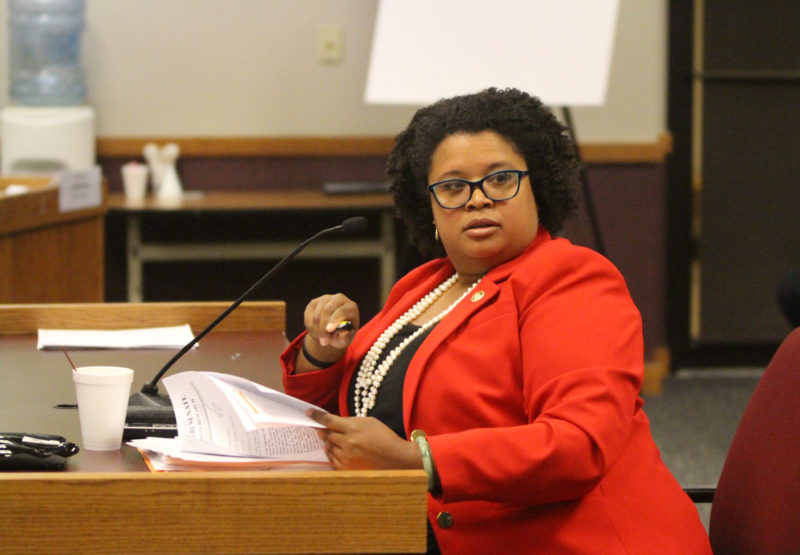JEFFERSON CITY, Mo. – With calls for a special session swirling around the state, the question of just how the legislature could call a session in order is on the minds of many.
Currently, the loudest cries are for a special session to deal with the expulsion of the recently embattled Sen. Maria Chappelle-Nadal, following her comments in regard to the assassination of the President. Article III, Section 18 of the Missouri Constitution outlines how an elected official may be expelled. Lt. Gov. Mike Parson has called on the Senate to petition for a special session, as well as calling on the senator to resign by veto session (Sept. 13).
“I talked to the Lieutenant Governor, I’ve talked to Senate leadership, and if she does not resign, steps will be taken to remove her,” Greitens stated during a Wednesday morning Facebook Live video.
But the Legislature could also potentially take up the controversial circuit breaker bill, better known as HCB 3, though several legislators tell the Missouri Times it seems unlikely that will be the case at this time.
But what would it take to call a special session? It could be done with a call from Gov. Eric Greitens, who has already used it twice this summer, or it could be done with a three-fourths vote of both chambers of the General Assembly.
Article III, Section 20b outlines the rules pertaining to the calling of a special session by the legislature and states that a petition shall be filed with the Secretary of State stating the purpose for which the session is to be called.
It outlines that the petition must be signed by three-fourths of the members of the Senate and three-fourths of the members of the House of Representatives, at which point the President Pro Tem of the Senate and the Speaker of the House shall by joint proclamation convene the General Assembly in special session.
The chambers will then have 30 days to work under that session, before automatically standing adjourned sine die at 6:00 p.m. on the final calendar day.
But how does this pertain to the potential special sessions in reference to Sen. Chappelle-Nadal or HCB 3?
The real questions here are whether the chambers would have the numbers to even call a session or not. For those trying to do the math, the Senate would need 26 members to sign off on the petition, while the House would need 123 representatives.
In terms of HCB 3, that could more easily be said than done, since the bill failed to even get enough votes for an override in the final vote, with just 83 approving the measure. The Senate would just barely have enough, with 27 senators casting “aye” votes.
Another thing to point out is that, in the case of Sen. Chappelle-Nadal, only one chamber would be acting on anything, as it would be up to the Senate to expel one of their own. However, there is no provision in the law that relates to just one chamber being called into session, meaning that state law instead would require both chambers to come to a session, even if the House would have no actions in the matter.
If the special session to expel Sen. Chappelle-Nadal is called, several legislators say the most likely outcome would be that the embattled senator would resign, as state law would require the forfeiture of Chappelle-Nadal’s retirement benefits under MOSERS if she is removed from office.
Whether a special session is called depends on how the senators would vote on the matter, and if they do not have the numbers to expel her outright, then leadership might try another option, which is to censure the senator.
The Missouri Times has reached out to the Governor’s Office to inquire as to whether the Governor would take the matter of calling for a special session into his own hands but has not received any comment at this time.
Benjamin Peters was a reporter for The Missouri Times and Missouri Times Magazine and also produced the #MoLeg Podcast. He joined The Missouri Times in 2016 after working as a sports editor and TV news producer in mid-Missouri. Benjamin is a graduate of Missouri State University in Springfield.








